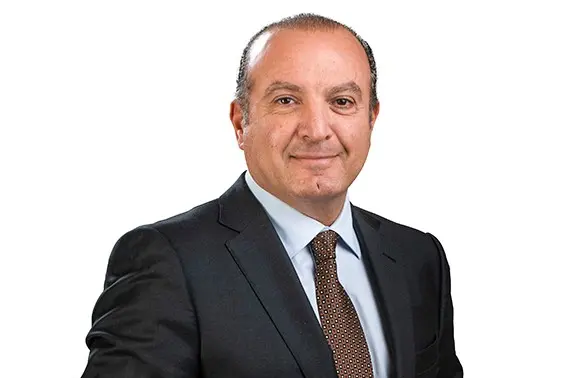PHOTO
In the face of the recent steep depreciation of the local currency and rising inflation, Edita, Egypt’s leading snack food producer, is weighing various options to adapt to the rising production costs without losing any of its wide customer base, according to the company’s CEO, Hani Berzi.
“We are trying as much as possible to maintain a price point that suits our customers, who are under a lot of economic pressure too,” Berzi told Zawya.
Founded in 1996 by the Berzi family and Chipita International, Edita has enjoyed the largest market share in many snack segments, with nearly 10 brands and more than 150 stock-keeping units (SKUs). Edita’s Molto, TODO, Bake Rolz, Bake Stix, Mimix, HoHo’s, Freska and Twinkies are household names among Egyptians.
In 2021, the company sold a total of 808 million packs at an average price of EGP 1.9, amassing EGP 5.3 billion in revenues and EGP 471.9 million in profits.
But like most food manufacturers, the company has been dealing with the double impact of the rise in global food prices and the devaluation of the Egyptian pound, which has lost over 50 percent of its value since March 2022. Eighteen percent of Edita’s production inputs, including skimmed milk powder, emulsifiers, cacao, antioxidants and preservatives, are imported and denominated in USD.
“The easiest thing to do is to raise prices, but if I do, that will affect our productivity, put some production lines on hold and hence result in layoffs,” Berzi said. “This is not an easy decision for a company like ours, with 7,600 workers. At the end of the day, we have a social responsibility.”
“I am cautiously pessimistic”
To maintain profitability, the company is considering indirect price increases of some snack categories, which means reducing the pack size without changing the price tag. Edita is also contemplating reducing the retailers’ profit margin, Berzi explained. However, the company would also have to raise the prices of select products, he added.
Edita is revising its budget for next year in light of the latest forex rates. The company had just completed its 2023 budget when the Central Bank of Egypt (CBE) announced the floatation of the Egyptian pound to meet the preconditions of a $3-billion IMF loan. The local currency immediately fell from 19.67/$ to 23/$ before settling at around 24.4/$ this month.
“At the time, I was trying to be optimistic, and I based the budget on an exchange rate forecast of 21.5/$. Today, we are forced to revise the budget,” Berzi said.
Nevertheless, he is confident that some of the budget’s elements, such as the allocation of at least EGP 300 million for operational upgrades and the launch of a new bakery production line, will survive.
The CBE announcement came shortly after the conclusion of a government-sponsored conference where experts, businessmen and different stakeholders were invited to share their views on the best ways to reduce the budget deficit, increase exports, reduce reliance on imported production inputs, and diversify sources of foreign currencies, thereby achieving long-lasting economic reform.
Berzi was among the participants, but he voices scepticism over the government’s seriousness about enacting long-term fixes to Egypt’s deep-seated economic woes: “I am cautiously pessimistic because we tend to repeat the same mistakes. We were in the exact same position in 2016 and we ended up not making the right decisions. That has brought us back to square one in 2022.”
Broken promises
In the Fall of 2016, the Egyptian government had devalued the local currency to meet one of the key conditions of a $12-billion IMF loan. The exchange rate had gone from 8.8/$ to nearly 20/$ in only a couple of months before settling at 15.7/$ a few years later. The government had promoted these reforms as the best way to increase exports and eventually boost the value of the local currency.
“The 2016 [devaluation] did not result in an increase in our exports,” said Berzi, who also chairs Egypt’ s Food Export Council. “Instead, the cost of production increased because inputs were imported at an exchange rate of 15/$ instead of 8/$. Hence, we could not have any competitive edge on external markets.”
Berzi also observed that the government had failed to meet its promises on the export subsidy program, which was expected to reduce production costs for export-oriented industries.
Share buy back
Edita exports 8% of its annual output mostly to Arab countries, including Saudi Arabia, Iraq, Palestine, Jordan and Libya. In 2021, the company recorded gross export sales of EGP 309.9 million, which contributed 5.9 percent to the company’s total revenues, compared to 6.2 percent in 2020.
The company is expected to maintain a program aimed at buying back nearly 5% of its publicly traded shares till January 2023, Berzi said. “We have bought 1.9% of the total outstanding shares so far. We have regulatory approvals to go up to 4.8%.”
The buy-back program was first launched in August as an attempt to stem the undervaluation of its stock price on the embattled EGX. “Our goal now is to boost our stock as much as we can,” Berzi said. “We believe that Edita’s stock price does not reflect the real or the fair value of the company. This is why we are using our cash to buy back shares.”
(Reporting by Noha El Hennawy; editing by Seban Scaria)




















